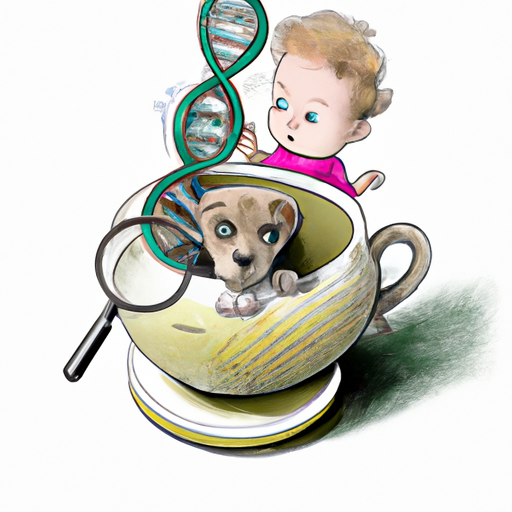Hello, dear caregivers! Today, we’re going to delve into the fascinating world of teacup dogs. These pint-sized pets have captured the hearts of many, and if you’re considering to add one to your family, you might be asking yourself, “how are teacup dogs made?” So, without further ado, let’s get started.
1. What are Teacup Dogs?
Teacup dogs are not a specific breed, but rather a descriptive term for any dog that weighs less than five pounds full-grown. These dogs are named ‘teacups’ due to their extremely small size, which makes them fit comfortably in a teacup. They are often versions of already small breeds, such as Yorkshire Terriers, Chihuahuas, or Pomeranians, but have been selectively bred to be even smaller.
2. The Breeding Process
Teacup dogs are made through a process of selective breeding. Selective breeding involves choosing specific dogs to breed together in hopes of producing offspring with desired traits, in this case, a smaller size. Here’s a look at how this process unfolds:
- Selection of the Parents: Breeders will often choose the smallest dogs in a litter to breed, in hopes of producing even smaller offspring. This could be a smaller male or female.
- Size Reduction: This process of selecting the smallest dogs for breeding is repeated over several generations, resulting in a gradual reduction in size.
- Maintaining the Breed Standard: Despite the focus on size reduction, breeders must also strive to maintain other breed standards, such as temperament, coat quality, and overall health.
However, it’s important to note that size reduction can come with health risks, which we’ll discuss in the next section.
3. Potential Health Risks
While teacup dogs are undeniably adorable, their small size does come with potential health risks. Here are some of the most common ones:
- Hypoglycemia: Small dogs are prone to low blood sugar, which can result in lethargy, muscle tremors, or even seizures.
- Heart Disease: Teacup dogs often have heart problems due to their small size and delicate constitutions.
- Bone Fractures: Their tiny bones are more prone to fractures.
- Dental Problems: Small mouths can lead to crowded teeth and consequent dental problems.
As a caregiver, it’s essential to be aware of these potential health risks and to provide your teacup dog with appropriate care to mitigate them.
4. Proper Care and Maintenance
Teacup dogs require special care due to their small size and potential health risks. Here are some key points to consider:
- Feeding: Teacup dogs often need to eat more frequently than larger dogs to keep their blood sugar levels stable.
- Exercise: These dogs require less exercise compared to larger breeds.
- Safety: Extra precautions should be taken to protect teacup dogs from potential hazards due to their size.
- Health Check-ups: Regular health check-ups are essential to detect and address potential health issues early.
| Care Aspect | Description |
|---|---|
| Feeding | Frequent meals in smaller quantities |
| Exercise | Low-impact, short duration |
| Safety | Extra precautions to prevent injuries |
| Health Check-ups | Regular vet visits for early detection of health issues |
5. Are Teacup Dogs Right for You?
Whether a teacup dog is right for you largely depends on your lifestyle and capacity to provide the special care these dogs need. They’re a great fit for individuals or families who can give them plenty of love, time, and attention. However, if you have a busy lifestyle or young children who might accidentally harm a tiny dog, a teacup breed might not be the best choice.
Frequently Asked Questions
Q: How long do teacup dogs live?
A: The lifespan of a teacup dog varies by breed, but on average, they live between 10-15 years.
Q: Are teacup dogs difficult to house train?
A: Teacup dogs can be more challenging to house train due to their small bladder size. However, with patience and consistency, they can be house trained effectively.
Q: Can teacup dogs be left alone?
A: Due to their small size and potential for health issues, it’s not recommended to leave teacup dogs alone for extended periods.
Q: Should I get a teacup dog?
A: If you have the time, resources, and dedication to care for a teacup dog’s specific needs, they can make a wonderful addition to your family.
In conclusion, teacup dogs are a product of selective breeding focused on size reduction. While they are adorable and can make great companions, potential health risks and the need for special care should be considered before deciding to bring one into your home.



